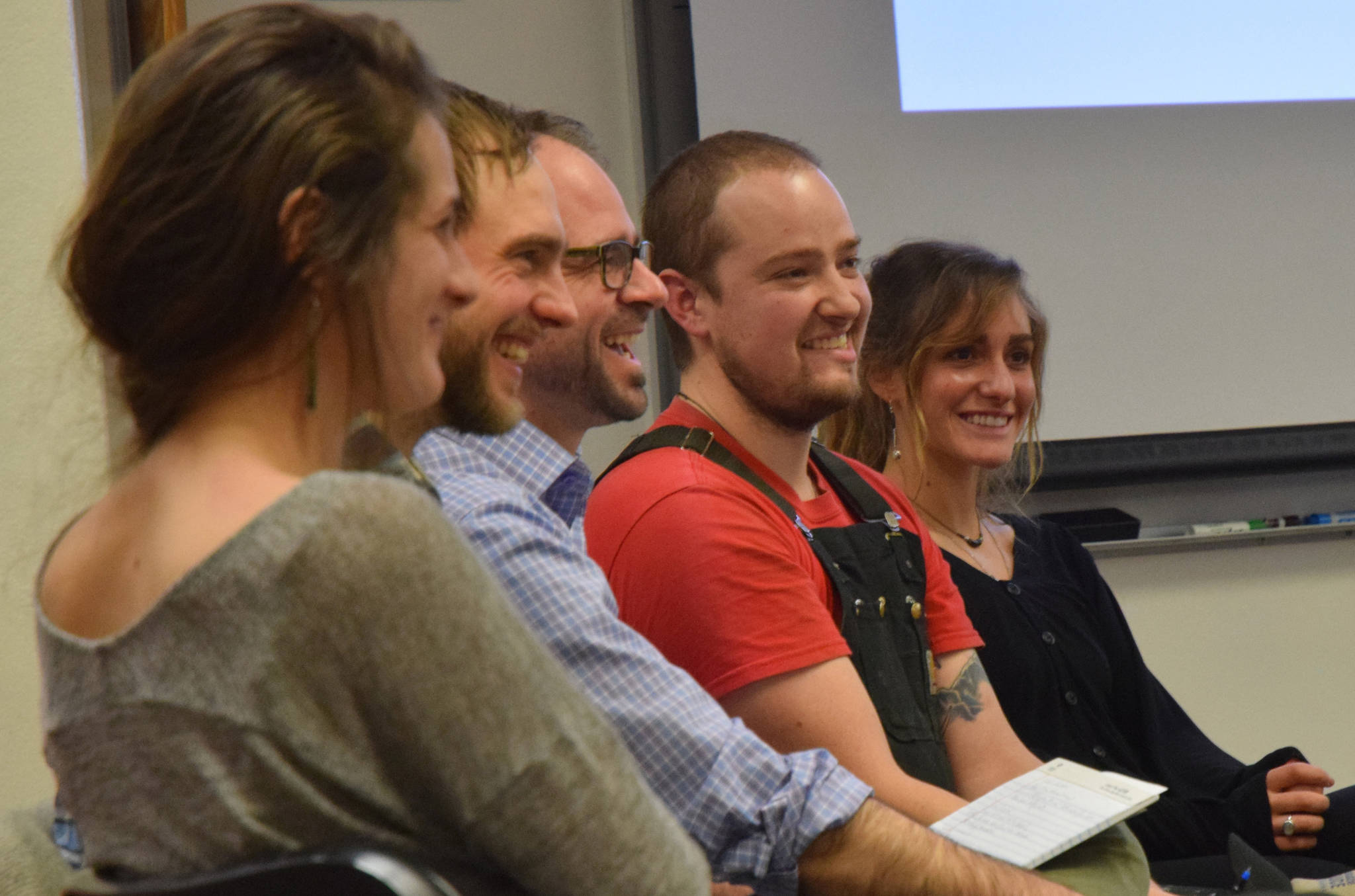Some fresh faces are looking to make a living while increasing the amount of food grown in Juneau. At least, that’s the first thing you might notice when taking a glance at Tuesday’s Juneau Commission on Sustainability panel.
The panelists, produce farmer Eli Wray, 29, kombucha brewer Kaila Buerger, 24, Salt &Soil Marketplace’s Colin Peacock, 33, and kelp harvesters Matt Kern, 31 and Lia Heifetz, 27, are all millennials.
Each is optimistic that Juneau can, with some planning and hard work, stop depending on weekly barge shipments to stay fed. But the opportunities are as big as the hurdles.
“It’s a challenging topic here in Southeast Alaska because we have to bring things so far to get here. But it’s also a really exciting opportunity because we are really rich with edibles here in Southeast,” Kern said.
Kern, who runs a business making food products from kelp (salsa, pickles and spices are currently on the menu at his and Heifetz’ business Barnacle Foods) said there’s big challenges facing Juneauites who want to grow and harvest enough food locally to supply themselves and their neighbors.
Only about 4.4 percent of Southeast’s fresh vegetables are grown locally. Southeast Alaskans spend about $19 million a year on imported produce while 38 percent of households grow their own foods.
To increase those numbers, Kern said locals will have to grow as much as they can while also looking to supplement their diets with foods they might not look for at the grocery store.
Kelp was the entry point for Barnacle Foods. It grows in abundance naturally on Southeast shorelines and around the state.
But it’s tough to grow, harvest and process enough kelp to put a dent in Juneau’s food supply. There’s not much of a precedent for a kelp products and it’s still cheaper to buy salsa at the store.
Barnacle has to ship their jars up from the lower 48, which eats into their bottom line.
In order for the business to thrive, he said, it’s crucial for Kern and Heifetz to offer customers something different: a connection to the land you don’t get from other foods.
“One of the ways we overcome that obstacle is adding layers of value to these products beyond their case, also sharing the stories of these products. People want to know what they’re eating, to be able to visualize what a shoreline in Alaska might look like. By dipping their chip into that salsa, they’re connected to that place,” Kern said.
Imported beverages are another area locals could produce more of. The thirst for an alternative to sugary soft drinks could be met, at least partially, by Buerger’s kombucha.
She sells her fermented, lightly-sweetened teas at Rainbow Foods.
“My long-term goals for the business is to focus on sustainability and Alaskan produce and reducing sugars,” she said, which could lessen Juneau’s demand for imported soft drinks.
Wray is one of only a small list of local produce producers. He grows everything from cucumbers to kale both indoors and out with his wife and business partner Kylie Wray.
It’s hard to grow staples at the scale Juneau would need them, Wray said, and a big hurdle will simply be finding enough land. He’s looking to expand, but so far he’s only found available land on the side of a mountain, or in a forested area. Not much of the town’s flat lands lie in areas that receive much sun.
Changing this will take a concerted effort by the City and Borough of Juneau, he said.
“Space, that really seems to be the biggest hurdle,” Wray said.
• Contact reporter Kevin Gullufsen at 523-2228 or kevin.gullufsen@juneauempire.com. Follow him on Twitter at @KevinGullufsen.

